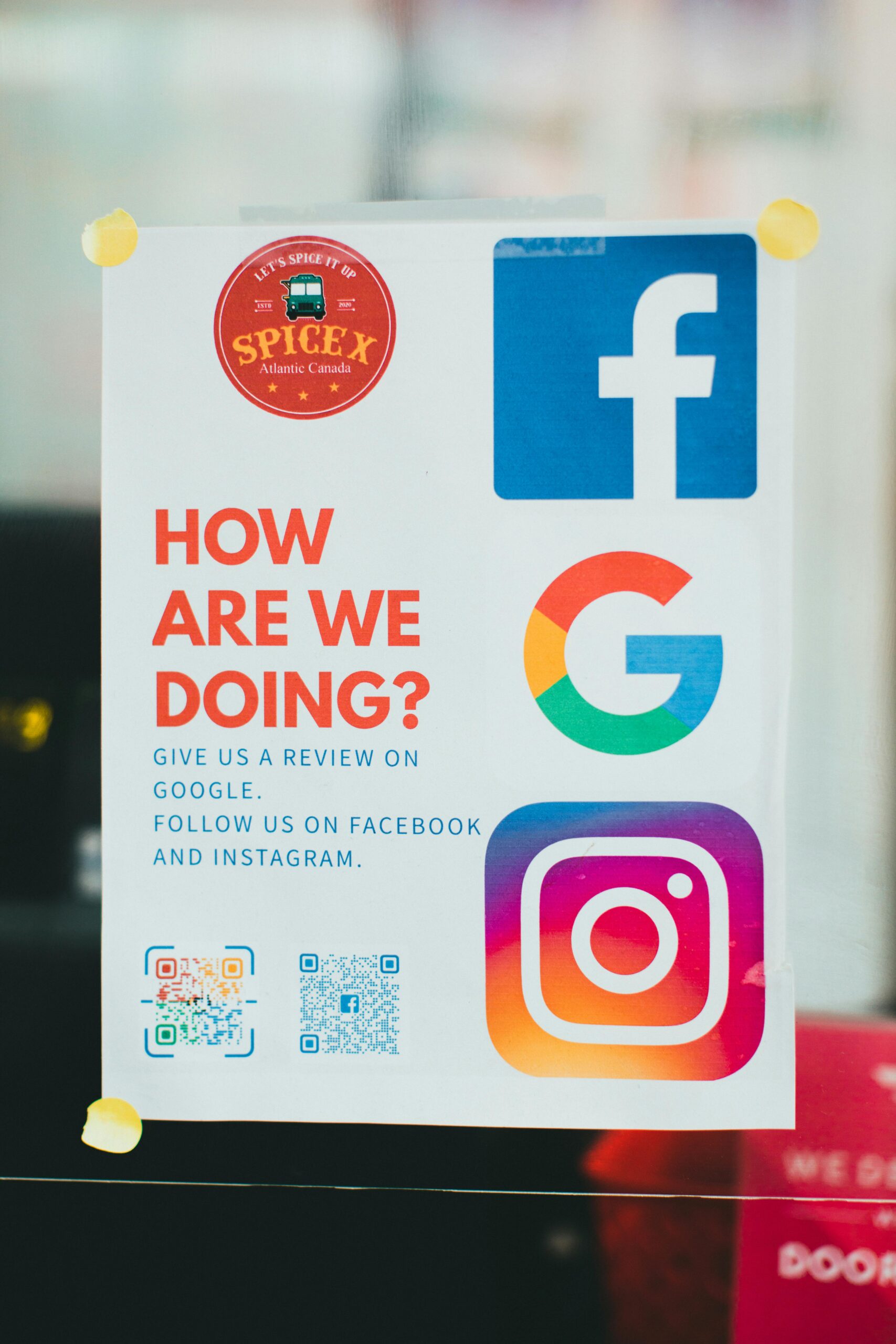In today’s fast-paced digital world, reviews business plays a crucial role in shaping a company’s reputation and driving growth. Have you ever wondered how powerful customer feedback can transform an ordinary business into a thriving success story? This article dives deep into the impact of online reviews and testimonials and explains why harnessing the power of customer opinions is more important than ever before. Businesses that ignore the value of customer reviews risk falling behind their competitors who actively engage with their audience through effective review management strategies.
When it comes to boosting success, customer feedback is not just useful; it’s a game changer. Positive reviews can boost your brand’s credibility, increase trust, and attract more potential buyers. But how exactly does this process work? The secret lies in leveraging authentic reviews to enhance your online presence and improve your search engine rankings. Did you know that 90% of consumers read online reviews before making a purchase decision? This staggering statistic underscores the importance of maintaining a robust reviews business strategy to stay ahead in today’s competitive market.
Moreover, managing reviews effectively means responding promptly to both praise and criticism, turning even negative feedback into an opportunity for growth. This article will explore powerful tips and cutting-edge tactics to maximize the benefits of customer feedback tools and create a loyal customer base that drives your business forward. Ready to unlock the hidden potential of your reviews business and boost your success like never before? Keep reading to discover how to turn every review into a powerful marketing asset that fuels your brand’s growth!
How Customer Reviews Drive Business Growth: 7 Proven Strategies to Leverage Feedback
Customer reviews have become one of the most important factors in deciding the success of a business today. Especially for companies in New York, where competition is fierce, getting the right kind of feedback from customers can make or break your brand. But how exactly do customer reviews drive business growth? And what strategies can businesses use to leverage this feedback effectively? This article dives into the topic, showing you 7 proven ways to use customer reviews to boost your company’s performance.
Why Customer Reviews Matter So Much
In the age of digital everything, customers rely heavily on reviews before making purchases. According to a 2023 study, over 85% of people trust online reviews as much as personal recommendations. This means, if you have positive reviews, your potential buyers are more likely to trust your product or service. Negative reviews, on the other hand, can quickly turn away prospects and damage reputation.
Historically, word-of-mouth was the primary feedback method. But now, online platforms like Google, Yelp, and social media have amplified customer voices to millions instantly. This changes the game for businesses that ignore or underestimate reviews.
7 Proven Strategies to Leverage Customer Feedback for Business Growth
Using customer reviews isn’t just about collecting stars or comments. It’s about understanding and acting on what those reviews tell you. Here are seven strategies to get the most out of your reviews:
Encourage Reviews Proactively
Many businesses wait passively for reviews. Instead, actively ask customers after purchase or service completion. Simple emails, SMS, or even in-person requests can increase the number of reviews. For example, a local café in Brooklyn noticed a 40% increase in reviews after adding a QR code on receipts directing customers to their review page.Respond to All Reviews, Good and Bad
Ignoring reviews, especially negative ones, can harm your business perception. Replying shows customers you care, and willing to improve. Even a brief “Thank you for your feedback” or “We’re sorry to hear about your experience, please contact us” can defuse negativity.Use Feedback to Improve Products or Services
Reviews often contain valuable insights about your business weaknesses or strengths. Instead of ignoring complaints, analyze them for patterns. For instance, if multiple reviewers mention slow delivery times, it might be time to improve logistics.Showcase Positive Reviews in Marketing Materials
Don’t hide good reviews under the rug. Use them in your website, social media posts, or email newsletters. Potential customers see authentic experiences from others and get convinced faster. Some businesses even create video testimonials out of glowing reviews.Incentivize Reviews Without Bribing
Offering a small discount or entry into a giveaway for leaving a review can increase participation. But it’s important to avoid paying for positive reviews directly, as this can lead to fake feedback and legal issues. Transparency matters.Monitor Review Platforms Regularly
Business owners should keep an eye on multiple platforms where their brand is mentioned. This includes Google My Business, Yelp, Facebook, and industry-specific sites. Using tools like Google Alerts or dedicated reputation management software helps to stay updated.Create a Feedback Loop with Your Team
Share customer reviews with your employees regularly. This helps frontline staff understand customer expectations and motivates them to deliver better service. For example, a New York-based hotel shared weekly review summaries with housekeeping and front desk teams to improve guest satisfaction.
Reviews Business: How Powerful Customer Feedback Boosts Success
The term “reviews business” has gained traction as companies realize that managing and leveraging customer feedback is a business function itself. It’s no longer just marketing or customer service job — it’s an organizational priority. Businesses that embrace this mindset tend to grow faster and sustain their success longer.
Here is a simple comparison of businesses that actively use customer reviews versus those who don’t:
| Aspect | Businesses Using Reviews | Businesses Ignoring Reviews |
|---|---|---|
| Customer Trust | High, due to transparency | Low, customers feel uncertain |
| Brand Reputation | Improved through engagement | Easily damaged by negative posts |
| Product Improvement | Continuous based on feedback | Stagnant, misses customer needs |
| Customer Loyalty | Stronger, customers feel valued | Weaker, customers seek alternatives |
| Marketing Efficiency | More authentic and cost-effective | More expensive and less effective |
Practical Examples from New York Businesses
- A small bookstore in Manhattan started asking customers to leave Google reviews after every purchase. Their average rating climbed from 3.8 to 4.5 stars within six months, leading to a noticeable increase in foot traffic and online sales.
- A restaurant in Queens responded to every Yelp review, thanking positive reviewers and addressing complaints professionally. This approach helped them win a local “Best Customer Service” award.
Why Authentic Reviews Matter: Boost Your Business Credibility and Online Reputation Fast
In today’s fast-moving digital world, businesses are finding it harder than ever to stand out from the crowd. One of the most powerful tools they have is right at their fingertips: customer reviews. Why authentic reviews matter? Because they not only build trust but also boost business credibility and online reputation fast. People don’t just look for products or services anymore; they look for real experiences shared by others like them. This makes reviews business an essential part of any marketing strategy.
The Power of Customer Feedback in Business Success
Customer feedback have become a cornerstone in how modern businesses grow and thrive. When someone shares their honest opinion, it creates a ripple effect that influence others in ways advertisements can’t always achieve. This is especially true in New York, where competition is fierce and consumers are bombarded with choices every day.
Historically, word-of-mouth was limited to your immediate community or social circle. Today, with the internet and social media, that word-of-mouth spread wide and fast. Platforms like Google Reviews, Yelp, and Facebook allow customers to publicly share their experiences, positive or negative. This transparency forces businesses to not only keep their quality high but also to engage with their audience genuinely.
Why Authentic Reviews Matter More Than Ever
Authentic reviews carry weight because they feel real. People knows when a review seems fake or overly polished, and that mistrust can harm a business more than help. Here is why authentic feedback is invaluable:
- Builds trust quickly—potential customers tend to trust real opinions from other buyers more than the company’s own marketing.
- Improves online visibility—search engines favor websites with fresh, genuine content, including reviews.
- Offers constructive insights—businesses can learn what works and what doesn’t directly from their audience.
- Enhances customer engagement—responding to reviews, even negative ones, shows that a business cares.
Reviews Business: How Customer Feedback Drives Growth
A strong reviews business strategy doesn’t just collect feedback; it uses it to drive continuous improvement and marketing efforts. Let’s look at some practical ways reviews boost business success:
Increases Conversion Rates
Studies have found that products or services with positive reviews can see conversion rates jump by up to 270%. People feel more confident buying something when they know others had good experiences.Improves Local SEO
For businesses in New York, appearing in local search results is vital. Google uses reviews as a ranking factor, so more authentic reviews can push a business higher in local searches.Strengthens Brand Image
A business with many positive reviews appears more reliable and professional. This reputation can attract partnerships, investors, and more customers.Provides Competitive Advantage
In crowded markets, having a better average rating or more reviews than competitors can be a deciding factor for consumers.
Examples Showing the Impact of Reviews in New York
- A small Brooklyn coffee shop started encouraging customers to leave reviews on Yelp. Within three months, their online ratings rose from 3.5 to 4.7 stars. This spike led to a 40% increase in foot traffic, proving how reviews directly affect real-world success.
- A Manhattan-based tech startup used customer feedback to improve their app’s user interface. By addressing common complaints highlighted in reviews, they raised their average app store rating from 3 to 4.5 stars, which attracted more users and investors.
Comparing Fake vs. Authentic Reviews
| Aspect | Authentic Reviews | Fake Reviews |
|---|---|---|
| Trust Level | High, creates credibility | Low, seen as manipulative |
| Impact on SEO | Positive, preferred by search engines | Negative, can lead to penalties |
| Customer Perception | Genuine, helpful for decision making | Suspicious, damages reputation |
| Business Insights | Valuable for improvement | Misleading, no real feedback |
Businesses should avoid the temptation to buy fake reviews because the risk of being discovered is high. Instead, they should focus on collecting genuine feedback even if sometimes it includes criticism.
Practical Tips for Encouraging Authentic Reviews
- Ask customers politely after a purchase or service experience.
- Make leaving a review easy by providing direct links.
- Offer incentives like discounts or loyalty points (without demanding positive reviews).
- Respond promptly to all reviews, thanking or addressing issues.
- Display reviews prominently on website and social media.
Why Every Business Should Care About Reviews
Whether you run a small boutique in SoHo or a large service company in Queens, reviews business is a universal factor that shapes public opinion and drives sales. The credibility built from authentic reviews can’t be bought with advertising dollars alone. It comes from real people sharing real experiences.
In the end, businesses that embrace customer feedback and use it wisely create a virtuous cycle: better products and services lead to better reviews, which attract more customers, leading to even more feedback. This dynamic
Top 5 Ways to Collect and Utilize Customer Feedback for Maximum Business Success
In the busy streets of New York, where businesses are fighting for attention everywhere you look, customer feedback has become one of the most valuable tools. Many business owners often overlook how powerful reviews and feedback could be in shaping their success. But honestly, using customer feedback the right way can boost your business in ways you never imagine. From improving product quality to building trust, the ways to collect and utilize customer feedback are many, and in this article, we will explore the top 5 methods that can help you achieve maximum business success.
Why Customer Feedback Matters More Than Ever
Customer feedback isn’t just a nice-to-have thing anymore; it’s a necessity. Reviews business have shown how companies with active feedback systems tend to grow faster than those ignoring what their customers says. Historically, businesses relied on face-to-face conversations or phone calls to gather opinions, but today, digital platforms enable instant and broad feedback collection. The evolution from handwritten notes to online reviews shows how crucial customer opinions have become in the digital age.
Feedback gives a direct insight to what customers want, dislike, or find confusing. When businesses listen, they can adapt and offer better services or products. It also builds a sense of community and trust because customers feel they are being heard. But gathering feedback is only the start; understanding and using it properly is the real challenge.
1. Use Multiple Channels for Collection
Don’t just stick to one method to collect feedback. Different customers prefer different ways to share their opinions. Some like filling surveys, others prefer quick ratings, and many write detailed reviews. Here’s a list of popular channels to get feedback:
- Online surveys (email or website pop-ups)
- Social media polls and comments
- Review platforms like Yelp, Google Reviews, or TripAdvisor
- In-person interviews or feedback kiosks
- Customer service calls and chat transcripts
By diversifying your collection methods, you catch a wider range of feedback. For example, a restaurant in Manhattan might get detailed reviews on Yelp, quick feedback through Instagram polls, and direct complaints in person. These combined give a fuller picture than just one source.
2. Make It Easy and Incentivize Customers
If giving feedback is complicated or time-consuming, many customers will skip it. Businesses should aim to make the process quick and simple. Short surveys with clear questions or one-click rating systems can increase participation. Offering incentives like discounts, freebies, or loyalty points works wonders too. A study showed that businesses that offer a small reward for feedback see up to 30% more responses.
For instance, a retail store in Brooklyn could send a follow-up email with a 3-question survey and a coupon for 10% off the next purchase. Customers feel appreciated, and the business gains useful data.
3. Analyze Feedback for Trends and Patterns
Collecting feedback is useless if it just sits ignored. Your business need to actively analyze the data to find important insights. Look for common complaints or praises, and try to spot trends over time. Using tools like sentiment analysis software or simple spreadsheets can help organize and interpret data.
Here’s a simple framework to analyze feedback:
- Categorize comments (e.g., product quality, customer service, delivery time)
- Count frequency of each category
- Identify recurring issues or popular features
- Prioritize based on impact and feasibility of changes
For example, a tech startup in Queens noticed many customers complained about slow app loading times. After fixing this, their customer satisfaction score increased significantly.
4. Respond to Feedback Publicly and Personally
Ignoring feedback, especially negative ones, damages your reputation. Businesses should respond to reviews, questions, and complaints promptly. Public responses on platforms like Google Reviews show prospective customers you care about issues and are proactive. Personal follow-ups, like sending an apology email or offering compensation, can turn unhappy customers into loyal fans.
A restaurant in Manhattan once received a bad review about slow service. The owner replied publicly, apologized, and invited the reviewer for a free meal. This approach not only mended the relationship but also impressed other potential customers.
5. Implement Changes and Communicate Them
Collecting and analyzing feedback is pointless if you don’t make any changes from it. The most successful businesses use customer opinions to improve products, services, and processes constantly. After making changes, communicate them to your audience. Letting customers know their feedback led to real improvements reinforces trust and encourages more feedback.
A fashion boutique in SoHo started receiving feedback about limited size options. They expanded their range, then announced the update via newsletters and social media. This transparency boosted customer loyalty and sales.
Reviews business often highlight that companies embracing feedback grow faster, adapt better, and maintain stronger customer relationships. In New York’s competitive market, ignoring the voice of your customers is like throwing away a treasure map. Whether you’re a small café in the East Village or a tech company in Midtown, using these top 5 ways to collect and use customer feedback can
Can Negative Reviews Actually Help Your Business? Uncover the Surprising Benefits
Can Negative Reviews Actually Help Your Business? Uncover the Surprising Benefits
In today’s digital age, reviews business play a huge role in shaping a company’s reputation. Most business owners dread negative reviews, thinking it will damage their brand forever. But what if, believe it or not, these negative feedbacks can actually help your business grow? Yes, you read that right. Negative reviews, when managed properly, can become powerful tools that boost your business success. It’s not just about avoiding bad comments but learning how to use them to your advantage.
Why Customer Feedback Is More Powerful Than Ever
Customer reviews, whether good or bad, provide real insight about what customers thinks of your product or service. For decades, word-of-mouth was the primary method for sharing opinions, but now online reviews have taken over, making customer feedback more accessible and influential than it ever was. From Google reviews to Yelp, to specialized industry platforms, these feedbacks influence purchasing decisions dramatically.
A study from BrightLocal found that around 87% of consumers read online reviews for local businesses in 2023, and many of them trust these reviews as much as personal recommendations. This means your reviews business strategy should focus not just on generating positive reviews but embracing the negative ones too.
The Unexpected Benefits of Negative Reviews
Most business owners think negative reviews are bad news and try to delete or ignore them. But ignoring them is the worst mistake you could make. Negative reviews can actually:
- Build Trust and Credibility: No business is perfect, and customers know that. A mix of positive and negative reviews shows authenticity. If all reviews are perfect, people might suspect they are fake.
- Provide Valuable Feedback: Negative reviews highlight areas where your business need improvement. This can guide product development, customer service training, or operational changes.
- Increase Customer Engagement: Responding to negative reviews shows you care about customers and are willing to fix issues. This can turn unhappy customers into loyal ones.
- Boost SEO Performance: More reviews, both positive and negative, mean more keywords and content related to your business online. This helps search engines rank you higher.
Historical Context: Reviews Before the Internet
Back in the days before the internet, customer feedback was limited to conversations among friends or local reputation. Businesses didn’t have the chance to publicly respond or showcase their commitment to fixing problems. The internet and social media changed everything by giving everyone a voice and a platform. This openness forced businesses to adapt and become more transparent and accountable. Negative reviews that once would have been whispers, now are loud signals that businesses can’t ignore.
How to Use Negative Reviews To Your Advantage
If you want to boost your reviews business, here’s a practical approach to turn negative feedback into opportunities:
Monitor Your Reviews
Set up alerts for new reviews on Google, Yelp, Facebook, and industry sites. Don’t wait for the monthly check; respond quickly.Respond Promptly And Politely
Always thank the reviewer for their feedback even if it’s harsh. Apologize for the bad experience and offer solutions or a way to contact you offline.Learn From The Criticism
Identify recurring complaints or issues and address them in your business operations. This might mean retraining staff or improving product quality.Showcase Your Responses
Potential customers can see how you handle problems. A thoughtful reply can outweigh the negative review itself.Encourage More Reviews
Ask happy customers to leave reviews to balance the negative ones. More reviews overall help in making your business look trustworthy.
Comparison: Businesses That Embrace Reviews Versus Those That Don’t
| Aspect | Embracing Reviews | Ignoring Negative Feedback |
|---|---|---|
| Customer Trust | Builds trust through transparency | Lose credibility, seem unresponsive |
| Business Improvement | Uses feedback for growth and fixes | Miss out on important insights |
| Online Reputation | Shows authenticity with mixed reviews | Risk fake review suspicion or negative buzz |
| SEO Benefits | More content and keywords improve ranking | Lower engagement and fewer opportunities |
| Customer Loyalty | Turns unhappy customers into loyal fans | Negative feelings remain and spread |
Real-World Examples Of Negative Reviews Helping Businesses
Domino’s Pizza: In early 2000s, Domino’s faced harsh criticism about the quality of their pizza. Instead of hiding, they launched a campaign acknowledging the flaws and improving their recipe. The transparency and willingness to change boosted their sales greatly.
Amazon: Amazon doesn’t remove negative reviews unless they violate guidelines. They rely on the authenticity of all reviews to help customers make informed buying decisions. This honesty increased customer trust and loyalty.
Local NYC Restaurants: Many eateries in New York City actively respond to negative Yelp reviews by
The Ultimate Guide to Managing Online Reviews: Techniques That Skyrocket Customer Trust
In today’s digital age, the power of online reviews can’t be underestimated. For businesses in New York and beyond, managing customer feedback is no longer optional but a crucial part of success. The Ultimate Guide to Managing Online Reviews: Techniques That Skyrocket Customer Trust dives into how reviews business owners can harness this tool to boost their reputation and attract more customers. Customer reviews often acts like a double-edged sword; when managed well, it can increase trust, but if ignored, it can damage a brand’s image rapidly.
Why Customer Reviews is Important for Business Growth
Online reviews influences purchasing decisions more than ever before. Studies shows that about 90% of consumers read online reviews before visiting a business. This means that businesses with positive reviews are more likely to gain new customers, while those with negative or no reviews often struggles to attract attention. The concept of customer feedback dates back to the early days of commerce when word-of-mouth was the primary way people recommend products or services. Today, this word-of-mouth has gone digital and amplified exponentially.
Reviews are not just for social proof; they provides valuable insights for businesses to improve their services or products. Ignoring customer feedback is like closing your eyes to what your market really wants.
Techniques to Manage Your Online Reviews Effectively
Managing reviews isn’t just about collecting stars; it requires a strategic approach. Here are some practical techniques business owners should consider:
Respond Promptly to All Reviews
Whether positive or negative, responding quickly shows customers you care. It builds trust and demonstrates commitment. A study revealed that businesses which respond to reviews see a 12% increase in customer engagement.Encourage Happy Customers to Leave Reviews
Many customers will not leave a review unless asked. Simple follow-up emails or reminders after purchase can increase the number of positive reviews.Address Negative Reviews Constructively
Instead of ignoring or deleting bad reviews, try to resolve the issue publicly. This shows potential customers you take responsibility and are willing to improve.Use Review Management Tools
Platforms like Google My Business, Yelp, and Trustpilot allow businesses to monitor and manage reviews efficiently. Using software that aggregates reviews can help keeping track easier.
Comparing Different Review Platforms
Not all review websites are created equal. Depending on the nature of your business, some platforms might be more relevant than others.
| Review Platform | Best For | Features | User Base Size |
|---|---|---|---|
| Google My Business | Local businesses | Free, integrates with Google Maps | Billions of users |
| Yelp | Restaurants, services | Detailed reviews, photo uploads | Millions of users |
| Trustpilot | E-commerce, B2B | Verified reviews, analytics | Large global audience |
| TripAdvisor | Travel and hospitality | User rankings, travel forums | Millions of travelers |
Choosing the right platform depends on where your customers are most active and which format suits your business model.
How Customer Feedback Boosts Business Success
When businesses actively manages their reviews, several benefits follows:
- Increased Customer Trust: Positive reviews create social proof that encourages new clients to try your service.
- Improved Search Engine Ranking: Search engines like Google prioritizes businesses with higher ratings and more reviews, making you easier to find online.
- Better Customer Experience: Honest feedback helps identify areas for improvement, leading to better products or services.
- Higher Conversion Rates: Studies shows that businesses with good online reputations sees a significant rise in sales and customer retention.
Common Mistakes to Avoid in Reviews Business
Many business owners stumble by misunderstanding how reviews works. Here are few common pitfalls:
- Ignoring Negative Feedback: Pretending bad reviews don’t exist only worsens customer perception.
- Buying Fake Reviews: This practice can backfire when discovered and damage your credibility permanently.
- Responding Unprofessionally: Defensive or rude replies turn potential customers away.
- Not Asking for Reviews: Waiting passively for customers to leave feedback might result in very few reviews.
Practical Examples of Businesses Who Master Reviews
One local New York bakery, Sweet Delights, started responding to every Google review within 24 hours. They also sent follow-up emails to customers asking for feedback. Within six months, their rating jumped from 3.8 to 4.7 stars, and foot traffic increased noticeably. Another example is a tech startup that used a review management platform to track and analyze feedback from multiple sources. This helped them quickly fix product bugs and improve their app, leading to a 30% increase in user retention.
In the competitive reviews business world, those who actively engage with their customers online will win more trust and achieve long-term success.
Online reviews are more than just stars on a website; they are powerful tools that shape a business’s reputation and future.
Conclusion
In conclusion, reviews play a pivotal role in shaping the reputation and success of any business in today’s digital landscape. We explored how authentic customer feedback not only builds trust but also provides valuable insights for continuous improvement. Positive reviews can significantly enhance brand credibility and attract new customers, while constructive criticism offers opportunities to address shortcomings and elevate service quality. Additionally, leveraging review platforms strategically can boost online visibility and drive engagement. As businesses continue to navigate a competitive market, prioritizing genuine customer experiences and encouraging honest reviews should be at the forefront of their growth strategy. Ultimately, embracing reviews as a powerful tool for connection and improvement will foster stronger relationships with customers and pave the way for long-term success. If you haven’t already, start actively seeking and responding to reviews today to unlock the full potential of your business’s reputation.













